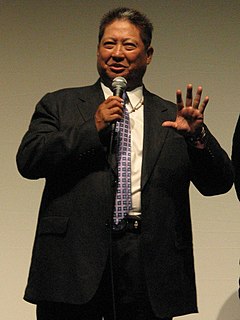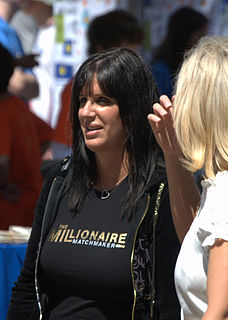A Quote by Alexander Chee
When I'm identified as a fiction writer at parties, the question comes pretty quickly. 'Did you go to school for it?' someone asks. 'Yes,' I say. 'Where?' they ask, because I don't usually offer it. 'I went to the Iowa Writers' Workshop,' I say.
Related Quotes
When someone asks you the question 'Are you ticklish' it doesn't matter if you say yes or no, cause they're going to touch you. If someone asks if you're ticklish and you don't want to be touched you should something like 'I have diarrhea, now don't touch me cause you'll make it come out... and yes I'm very ticklish'.
I went to school in California, at Stanford when I was seventeen, and I lived in San Francisco until I was twenty-three, and then I lived in Hungary for, like, a summer, and then I went to Iowa for three years. At Iowa, I actually did the fiction program, not poetry. I was a fiction writer for a long time before I was 'out' as a poet.
I really wish that peoplewould just say, 'Yes, it's a comic. Yes, this is fantasy. Yes, this is Science Fiction,' and defend the genre instead of saying, 'Horror is a bit passe so this is Dark Fantasy,' and that' s playing someone else's game. So that's why I say I'm a fantasy writer and to hell with 'It doesn't read like what I think of as a fantasy'. In that case what you think of as a fantasy is not a fantasy. Or there is more to it than you think.
Did you know you can take your bus anywhere you want to go? Say yes three times with me. Yes, yes, yes. You can take it to the movies, the beach or the North Pole. Just say where you want to go and believe that it will be so. Because every journey and ride begins with a desire to go somewhere and do something and if you have a desire then you also have the power to make it happen.
I don't hate redheads! The millionaire men - wealthy men - never pick them. Every time I offer them they say no. I could say the most gorgeous redhead in the world and they'll say no, they don't want it. Now if you ask an Irish guy in Ireland, he says 'yes,' because that's indigenous to that country.



































